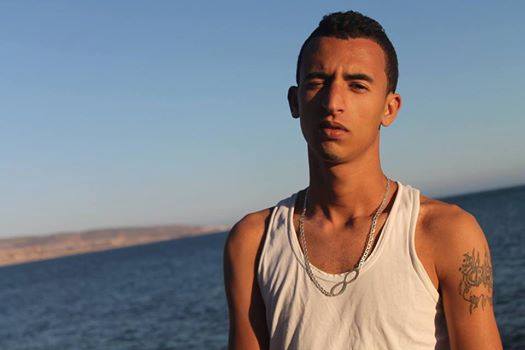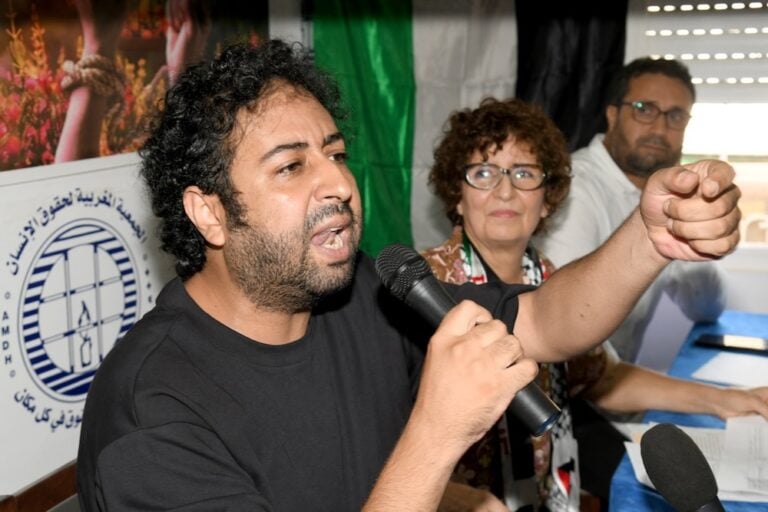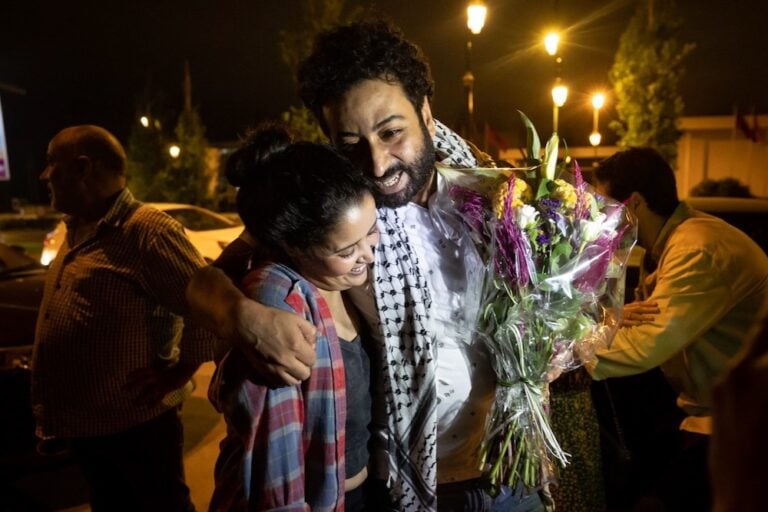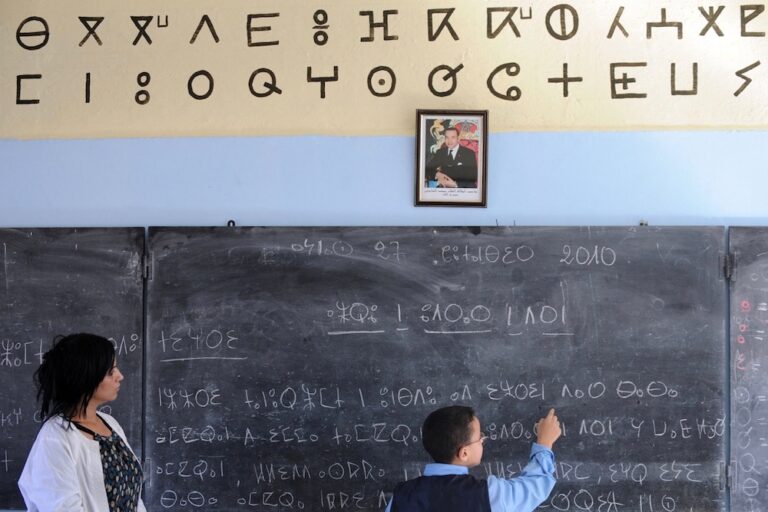Othman Atiq, whose songs and music videos depict the gritty lives of Casablanca's unemployed youth, is the second performer in Morocco's flourishing rap music scene to go to prison for his lyrics.
This article was originally published on hrw.org on 11 November 2014.
Othman Atiq, a 17-year-old Moroccan rapper known as “Mr. Crazy,” is due to be released by Moroccan authorities on November 12, 2014, after completing a three-month sentence for “offending a state institution,” “harming public morality,” and other offenses related to his lyrics.
Atiq, whose songs and music videos depict the gritty lives of Casablanca’s unemployed youth, is the second performer in Morocco’s flourishing rap music scene to go to prison for his lyrics, in violation of international free speech standards.
“The Moroccan government sent the wrong message by prosecuting a rapper like ‘Mr. Crazy’ for peacefully expressing his views,” said Sarah Leah Whitson, Middle East and North Africa director. “Jailing a 17-year-old for his songs hardly makes sense in a country that regularly hosts international music festivals and human rights conferences.”
Atiq, who sings in Moroccan Arabic, has been in custody since responding to a summons from the Casablanca prosecutor on August 8. On August 12 the court transferred him to a juvenile detention facility in Ain Sbaa, where he has been held since. On October 17, a Casablanca court juvenile chamber convicted him of “insulting a state institution” under the penal code, “incitement to consume drugs” under the narcotics law of November 15, 1958, and producing and displaying content that is “harmful to public morality” under the press code, Atiq’s lawyer, Saâdia Harrab, told Human Rights Watch.
In “Aqliya Mhabsa” (“Prison Mindset”), Atiq sings, “In my country/ you steal or you deal/ a stick-up here, a dope sale there/ all set up in advance/ I got it worked out with the police/ bought the market in my neighborhood/ made the policeman my dog.”
The video for the song “Fatcha M’absa” (“Scowling Face”) shows young men lounging about on Casablanca streets: it features obscene words in English and images of pills and rolled cigarettes.
The video for “Aqliya Mhabsa” depicts a young man in a milieu of drug-dealing and petty crime who ends up behind bars. In “Hyati naqsa,” (“My Life is Incomplete”), Atiq dismisses as “mere words” and “a dream” the national anthem’s references to Morocco as a country of “free men” and as “a source of light.”
Harrab, Atiq’s lawyer, said that “Hyati Naqsa,” “Fatcha M’absa,” and “Aqliya Mhabsa” were among Atiq’s songs produced as music videos that figured in the prosecution’s evidence, along with “Brika Ma3ksa” (“A Stubborn Lighter”), “Casa Mkarfsa” (“Casa is Dirty”), “Passé noir” (“Black Past”), and “Amrek Tansa” (“You Never Forget”). Most music videos can be found on Atiq’s Youtube channel.
The offense of insulting a state institution is found in penal code articles 263 and 265. The court discounted Atiq’s assertion that he did not insult the institution in question – the police forces – but was rather criticizing individual police agents who were corrupt.
In April 2013, another rapper, Mouad Belghouat, known as “Al-Haqed” (The Sullen One), completed a one-year sentence for a YouTube video set to one of his songs, “Kilab ed-Dowla” (“Dogs of the State”), which the court deemed insulting to the police. Al-Haqed also argued unsuccessfully that his song criticized individual police agents rather than the police as an institution.
Al-Haqed also served two shorter sentences on common criminal charges, including a four-month sentence earlier in 2014, for allegedly being inebriated in public and assaulting and insulting policemen.
Article 19(2) of the International Covenant on Civil and Political Rights states, “Everyone shall have the right to freedom of expression; this right shall include freedom to seek, receive and impart information and ideas of all kinds, regardless of frontiers, either orally, in writing or in print, in the form of art, or through any other media of his choice.”
The United Nations Human Rights Committee, the independent expert body that monitors state compliance with the covenant, has stated in a General Comment on freedom of expression that public authorities “are legitimately subject to criticism and political opposition. Accordingly, the Committee expresses concern regarding laws on such matters as … disrespect for authority. … [Governments] should not prohibit criticism of institutions, such as the army or the administration.”
Morocco’s constitution, in article 25, guarantees freedom of expression “in all its forms” and the “freedom to create, publish and display literary and artistic materials…” However, since its adoption in 2011, authorities have yet to amend an array of laws that impose prison terms for nonviolent speech offenses, such as those used to prosecute Atiq.



